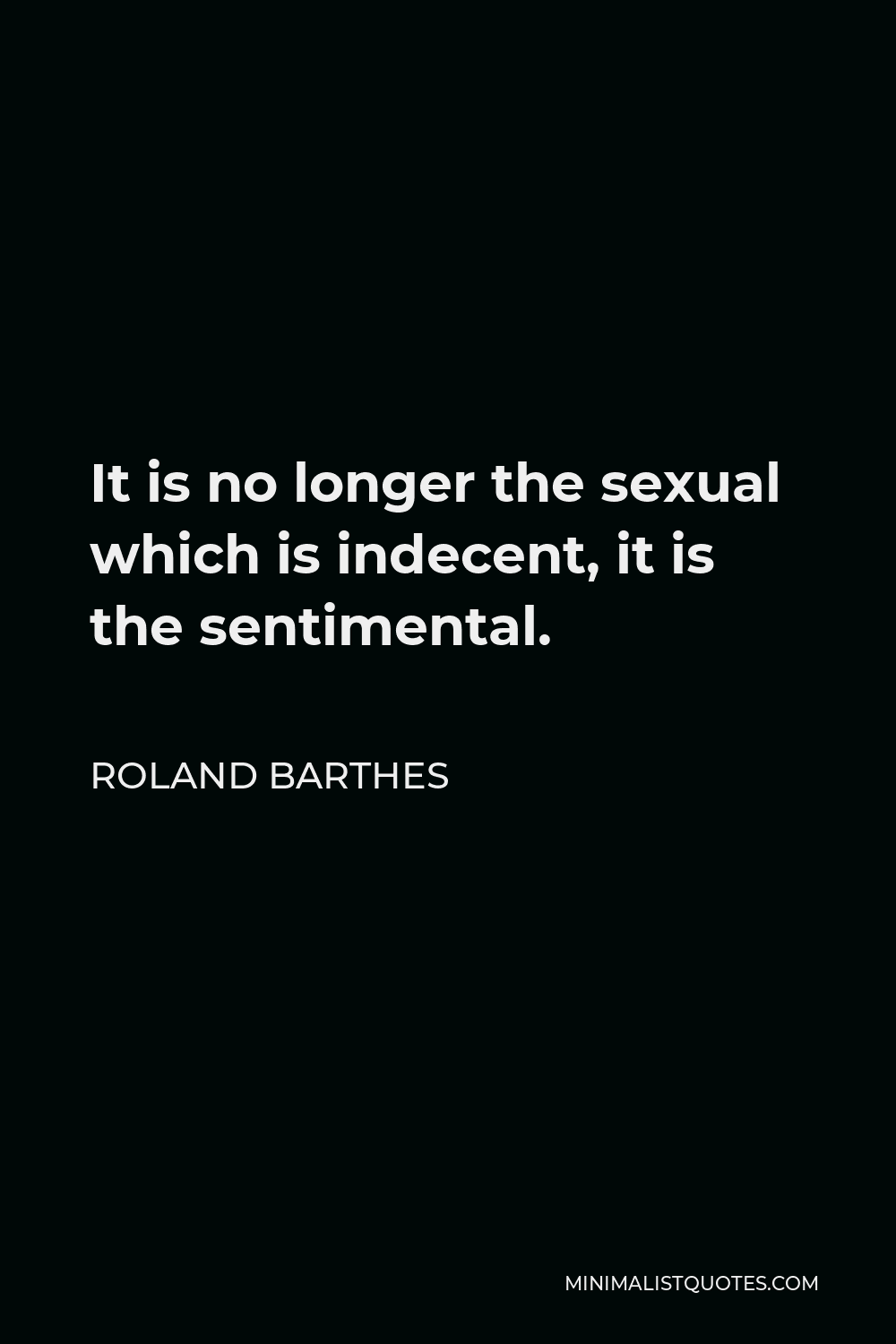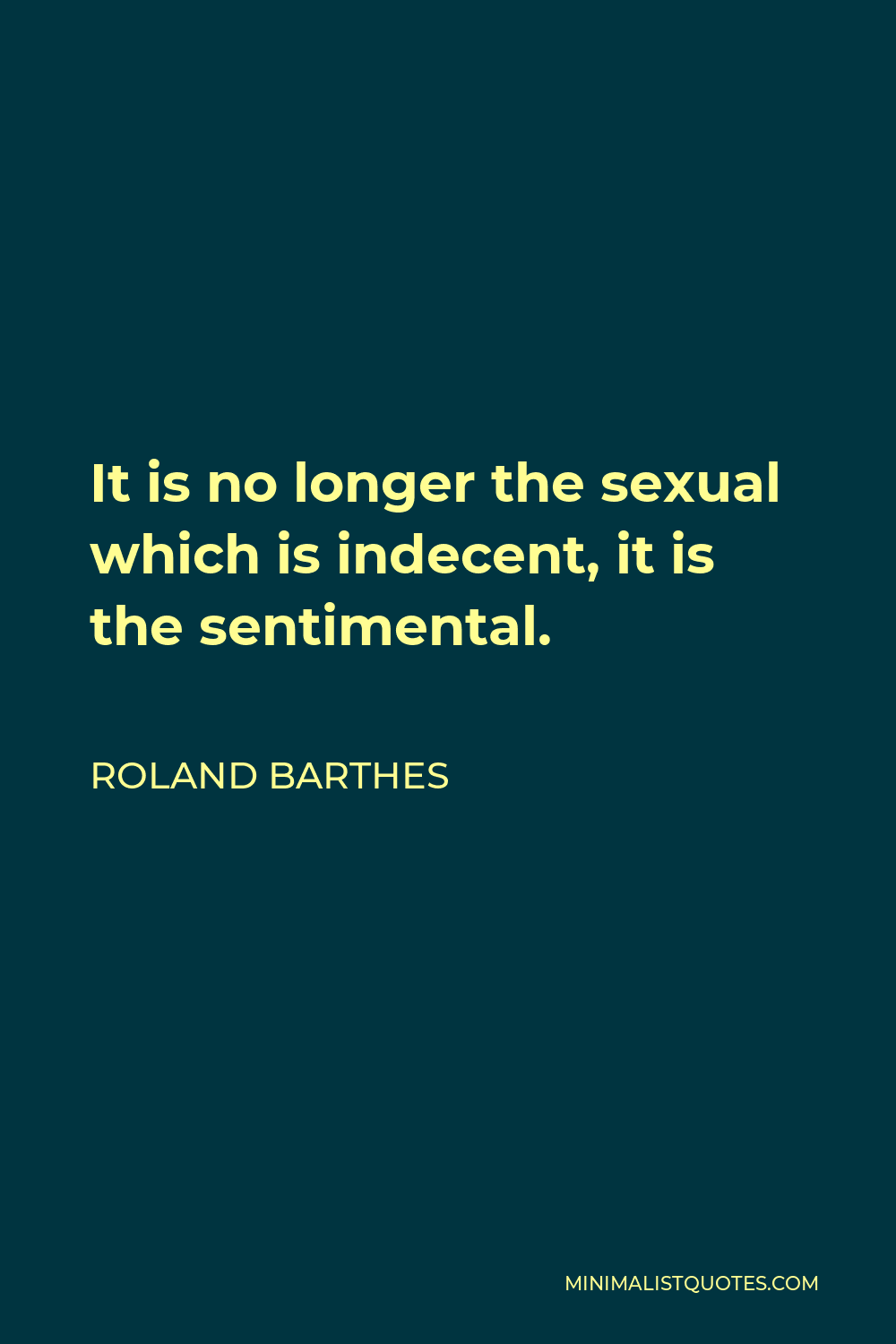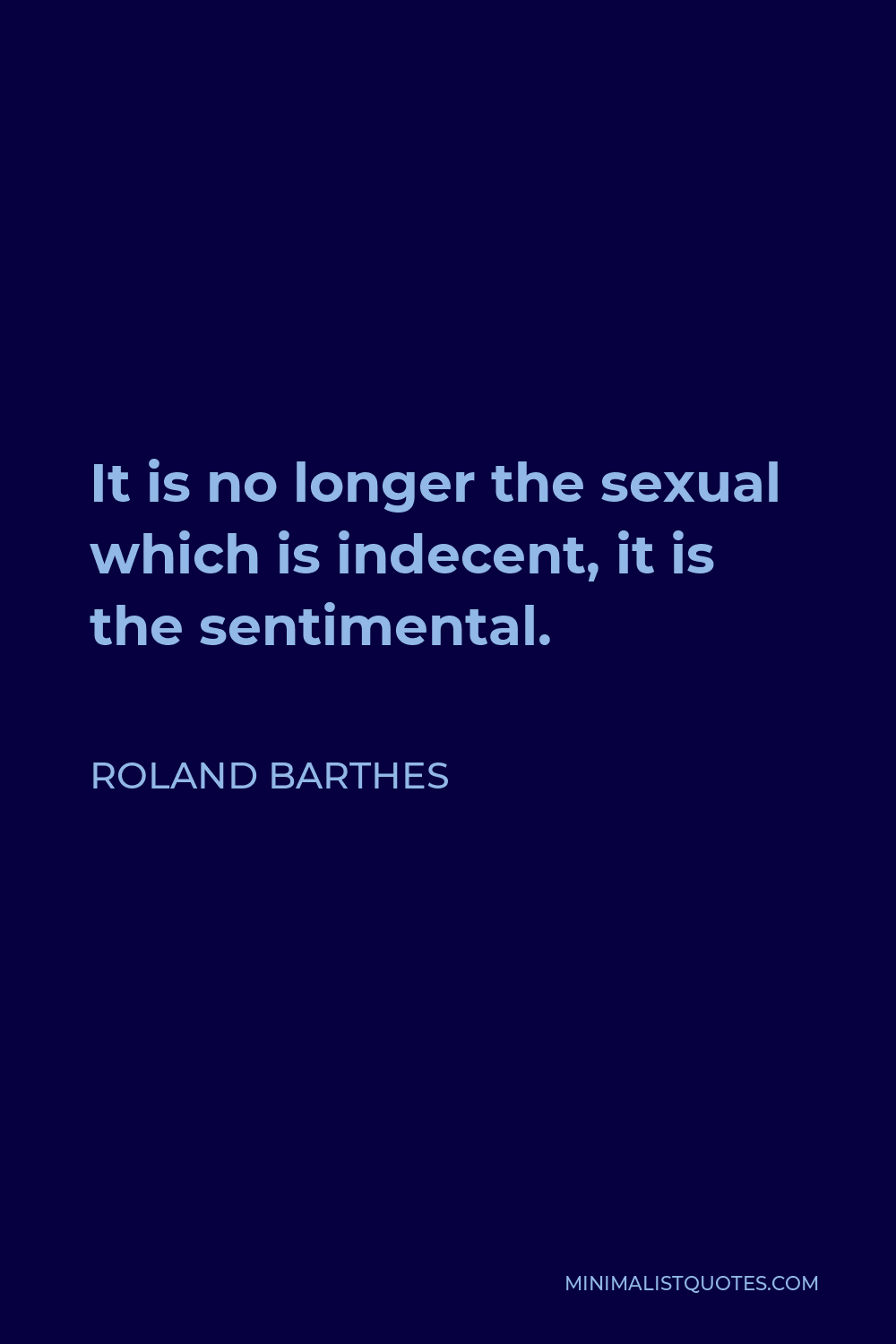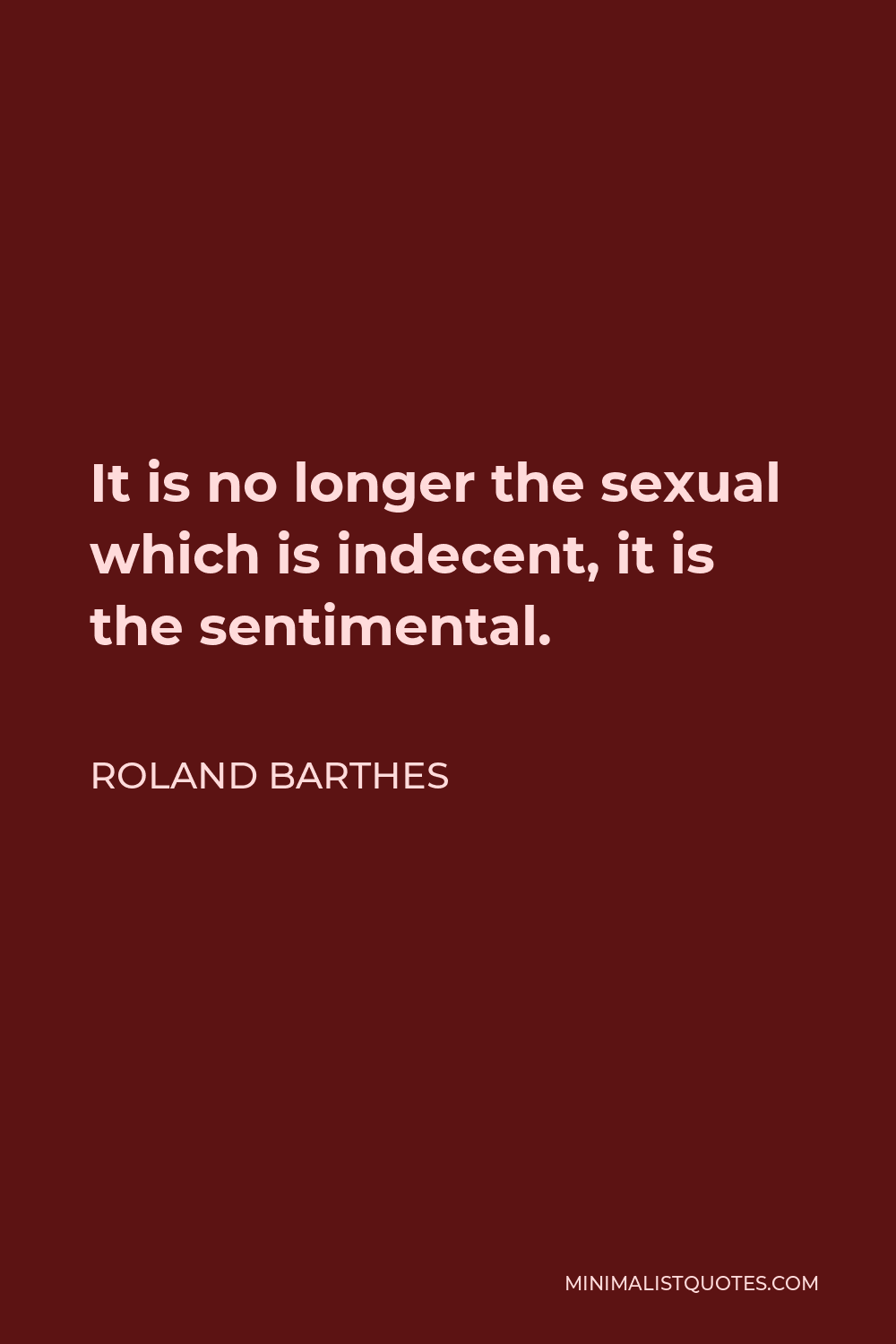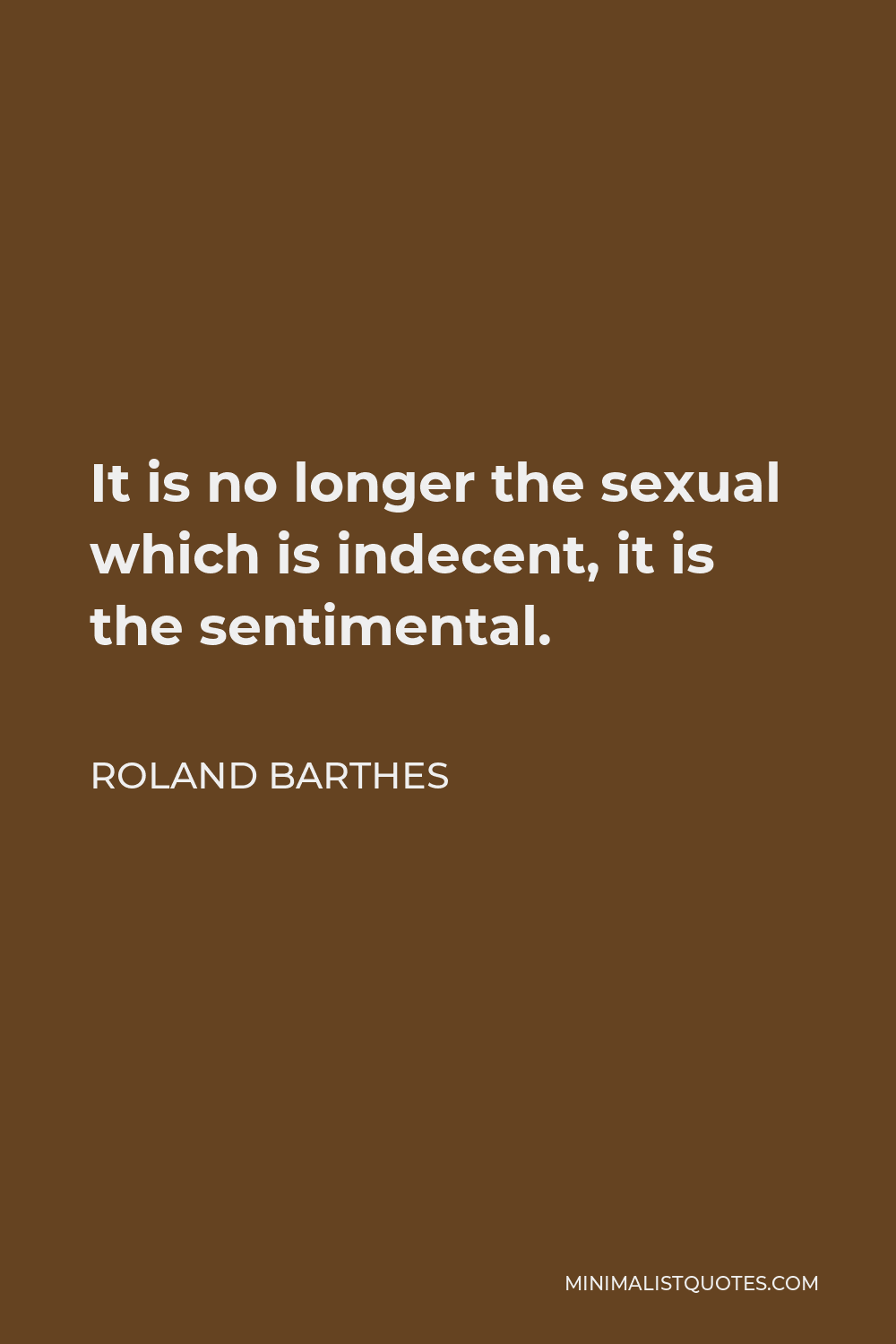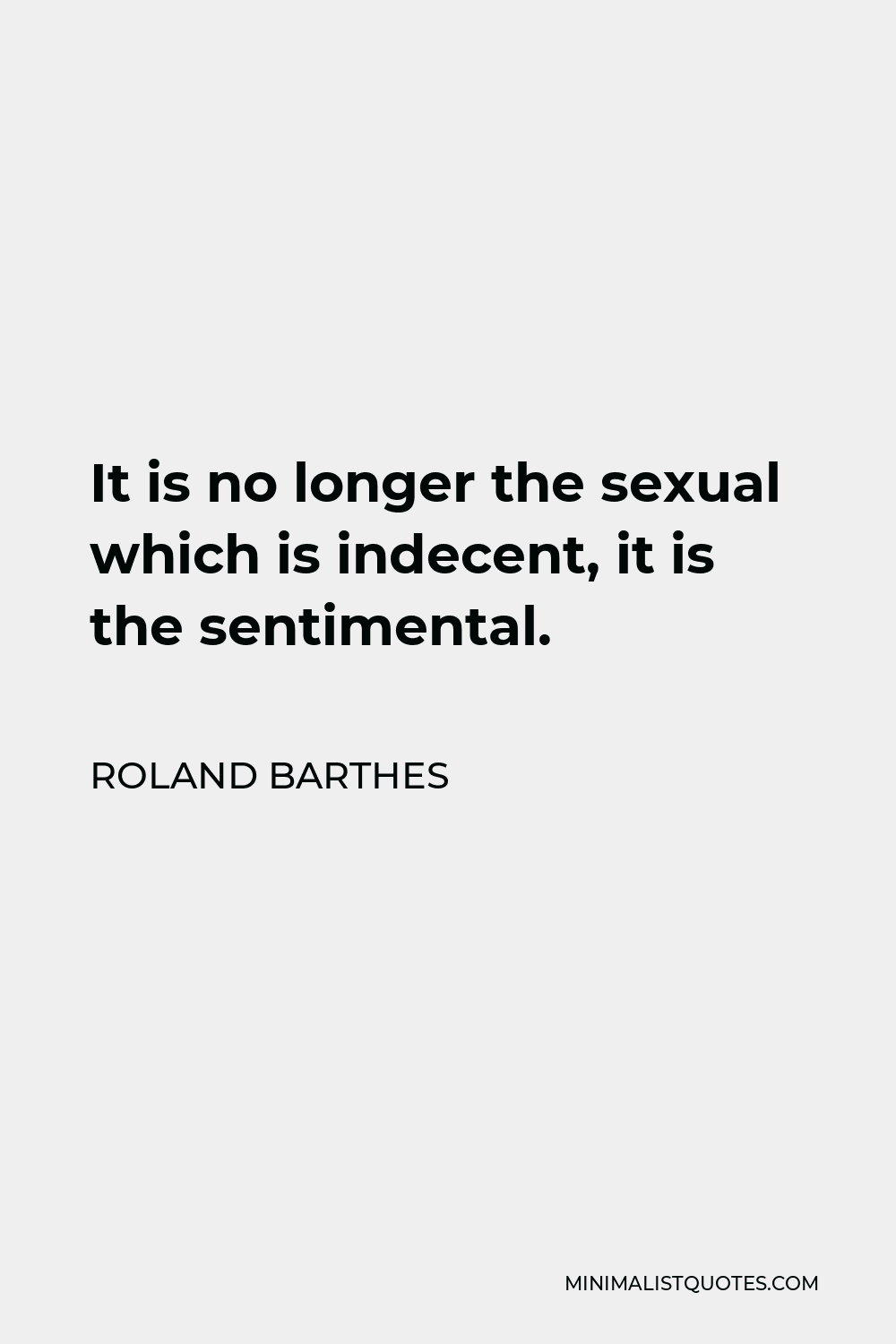Each of us has his own rhythm of suffering.
ROLAND BARTHESIt is no longer the sexual which is indecent, it is the sentimental.
More Roland Barthes Quotes
-





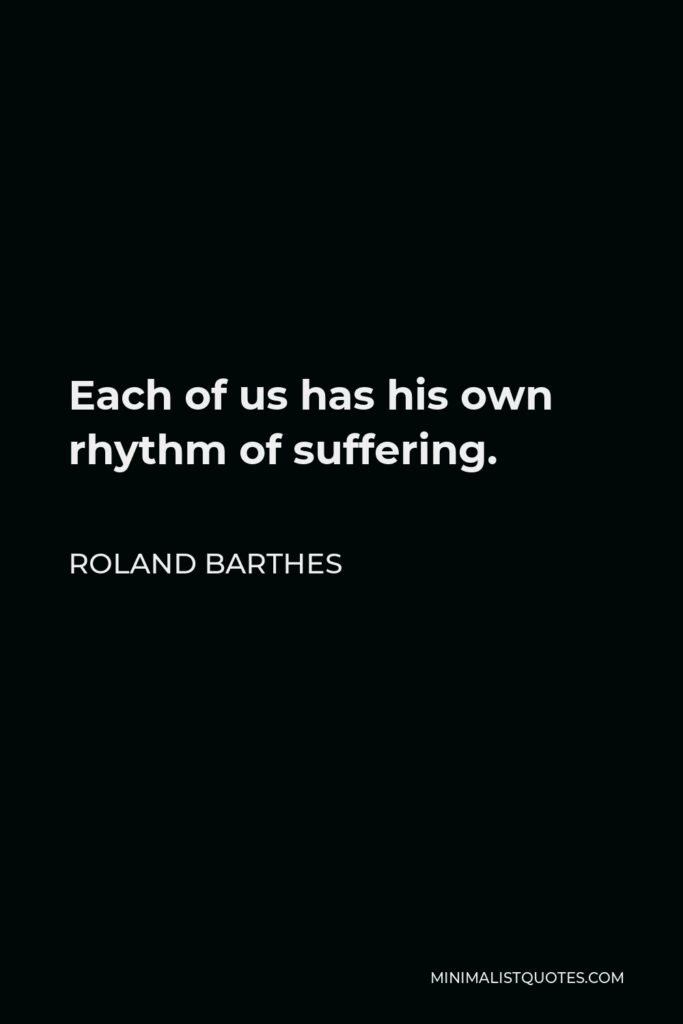

-





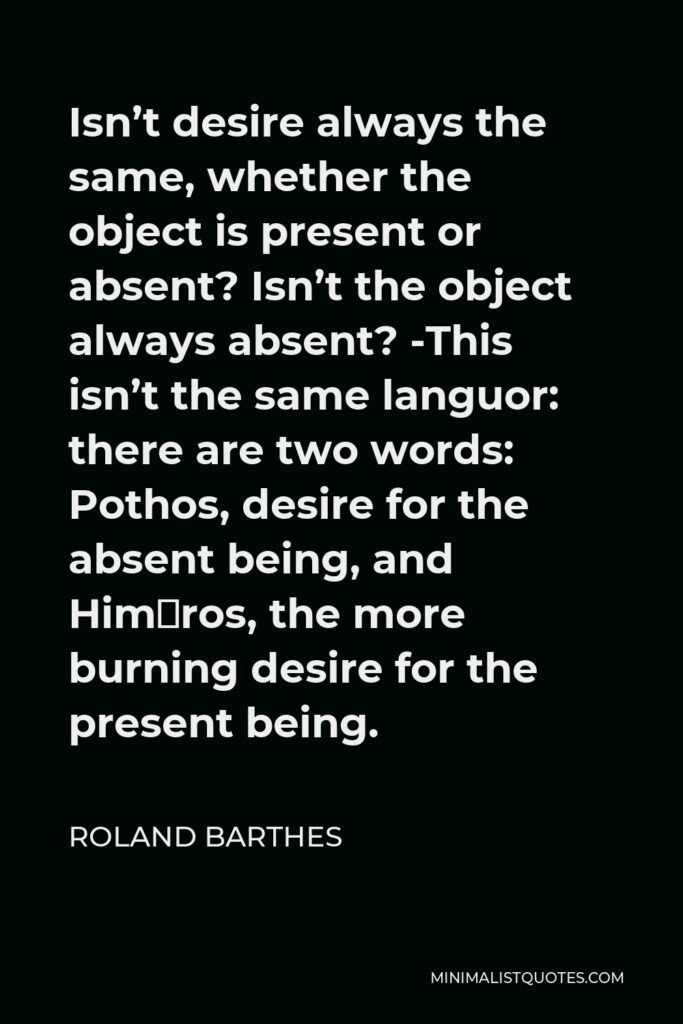

Isn’t desire always the same, whether the object is present or absent? Isn’t the object always absent? -This isn’t the same languor: there are two words: Pothos, desire for the absent being, and Himéros, the more burning desire for the present being.
ROLAND BARTHES -





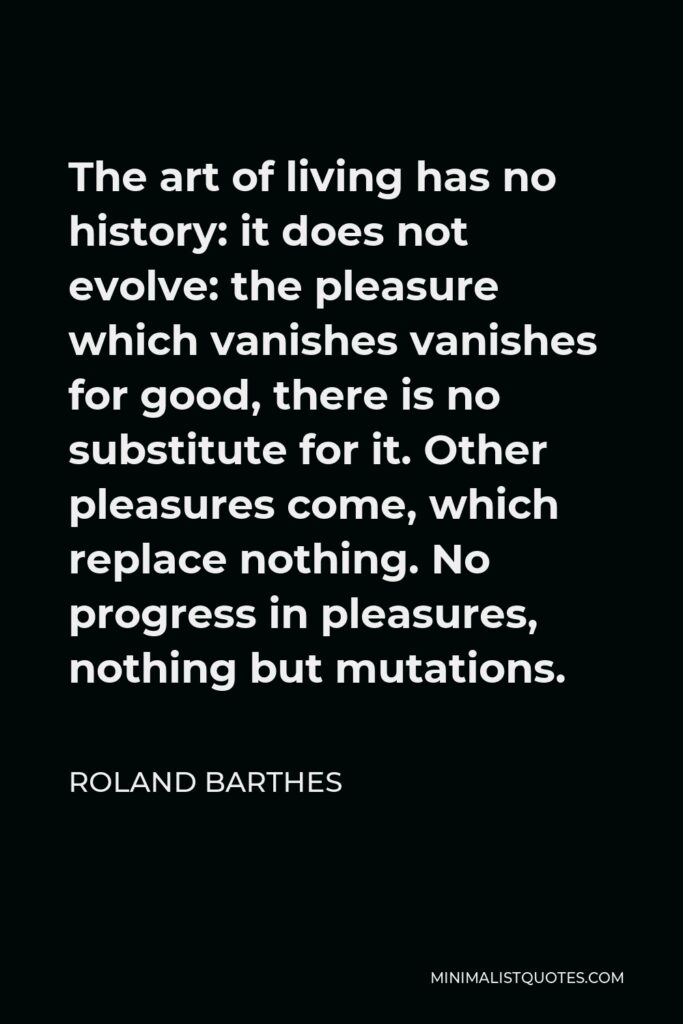

The art of living has no history: it does not evolve: the pleasure which vanishes vanishes for good, there is no substitute for it. Other pleasures come, which replace nothing. No progress in pleasures, nothing but mutations.
ROLAND BARTHES -





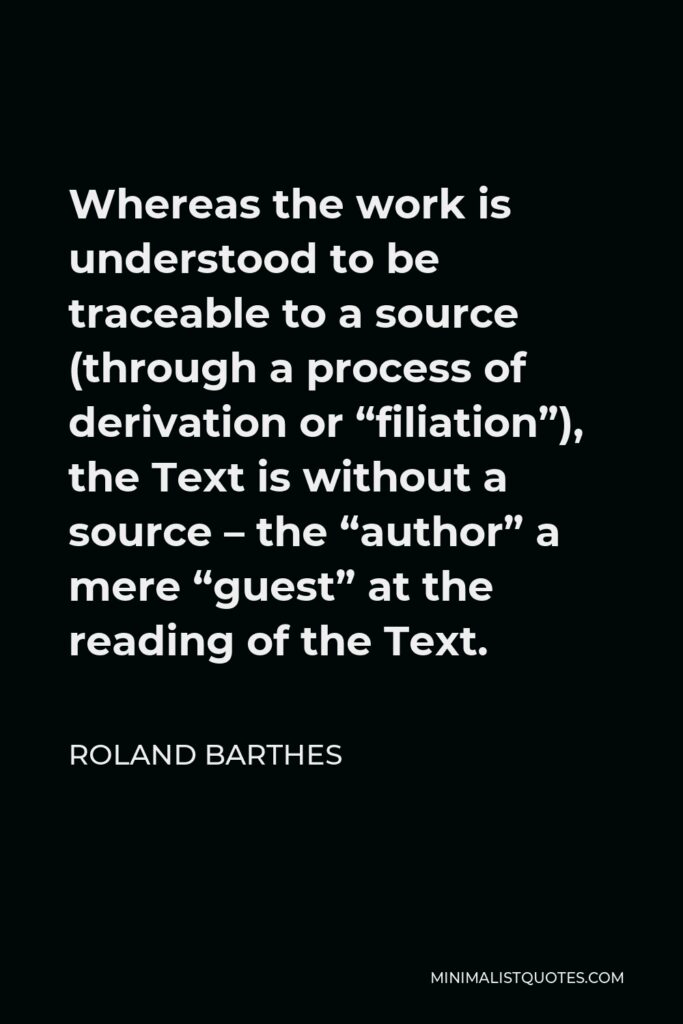

Whereas the work is understood to be traceable to a source (through a process of derivation or “filiation”), the Text is without a source – the “author” a mere “guest” at the reading of the Text.
ROLAND BARTHES -







As Spectator I wanted to explore photography not as a question (a theme) but as a wound.
ROLAND BARTHES -





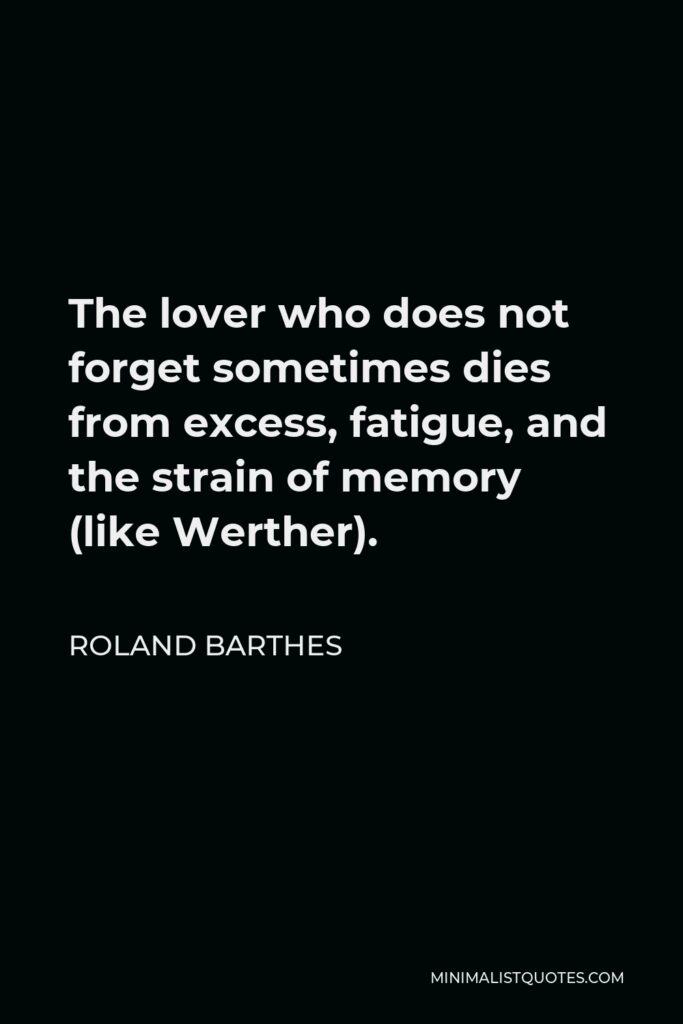

The lover who does not forget sometimes dies from excess, fatigue, and the strain of memory (like Werther).
ROLAND BARTHES -





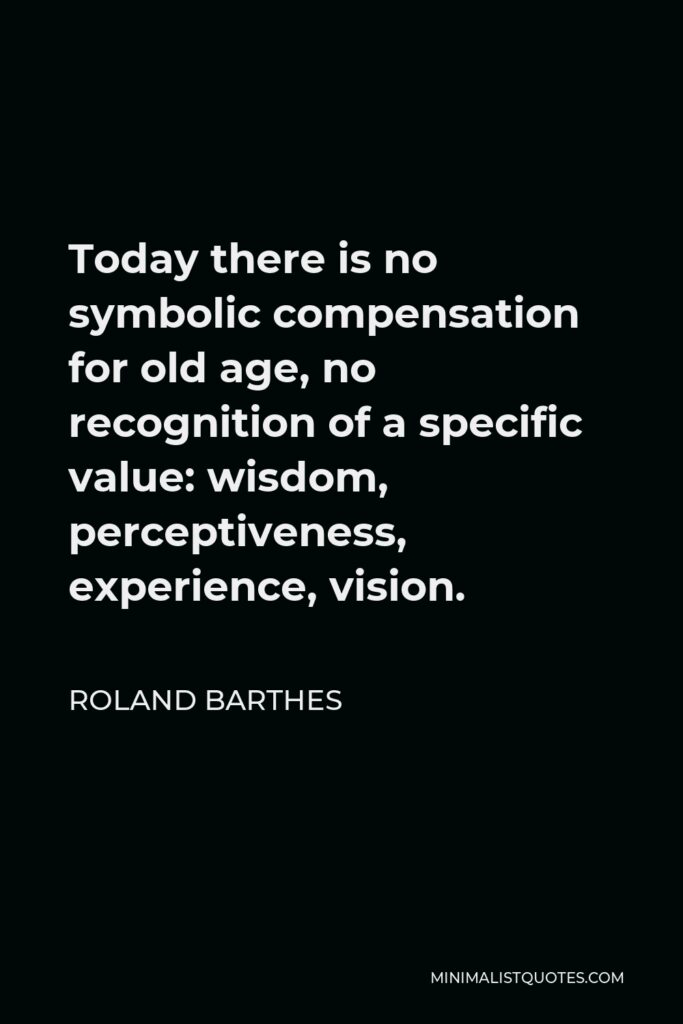

Today there is no symbolic compensation for old age, no recognition of a specific value: wisdom, perceptiveness, experience, vision.
ROLAND BARTHES -





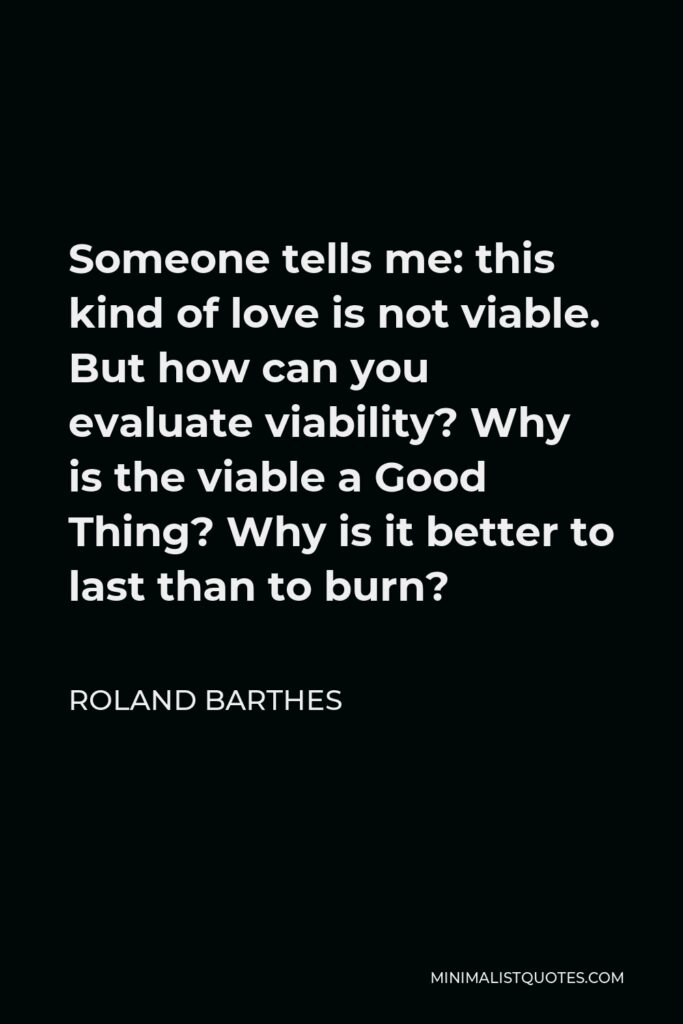

Someone tells me: this kind of love is not viable. But how can you evaluate viability? Why is the viable a Good Thing? Why is it better to last than to burn?
ROLAND BARTHES -





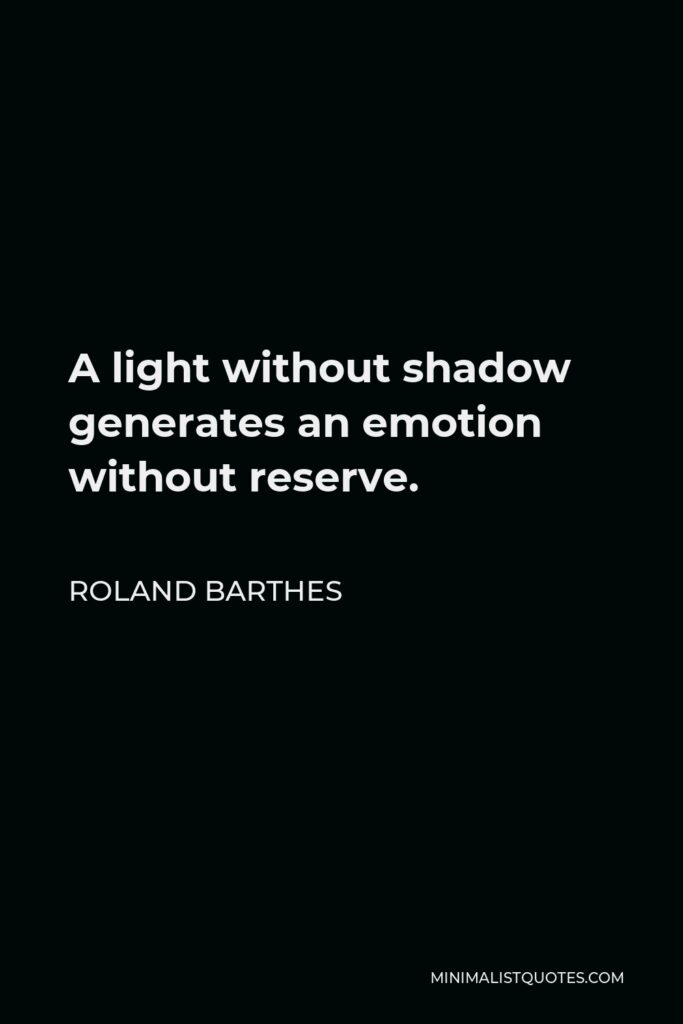

A light without shadow generates an emotion without reserve.
ROLAND BARTHES -





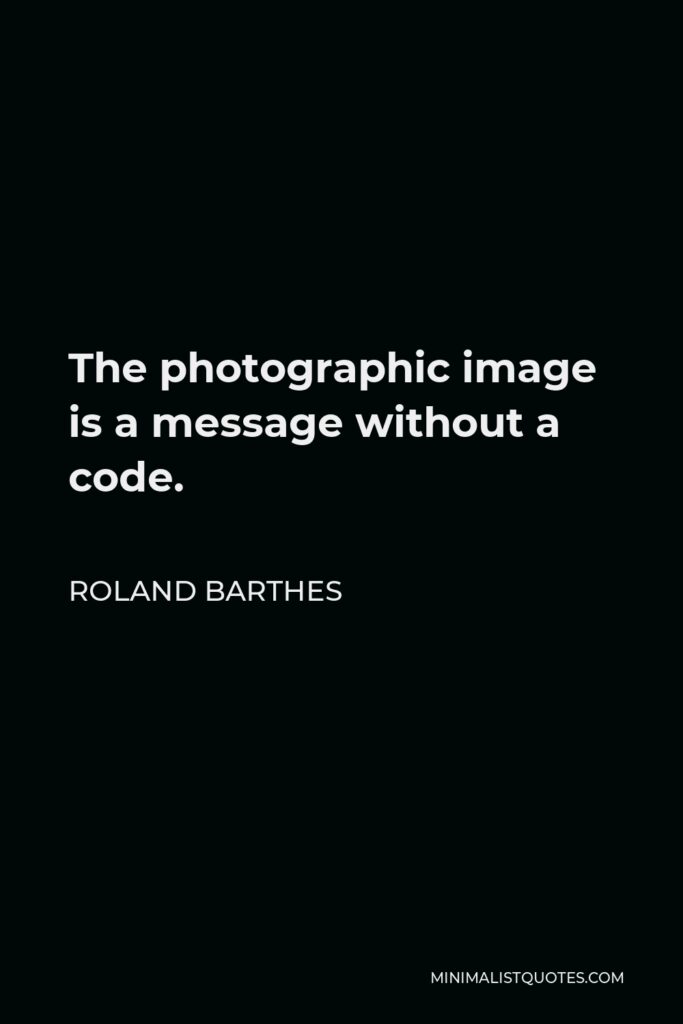

The photographic image is a message without a code.
ROLAND BARTHES -





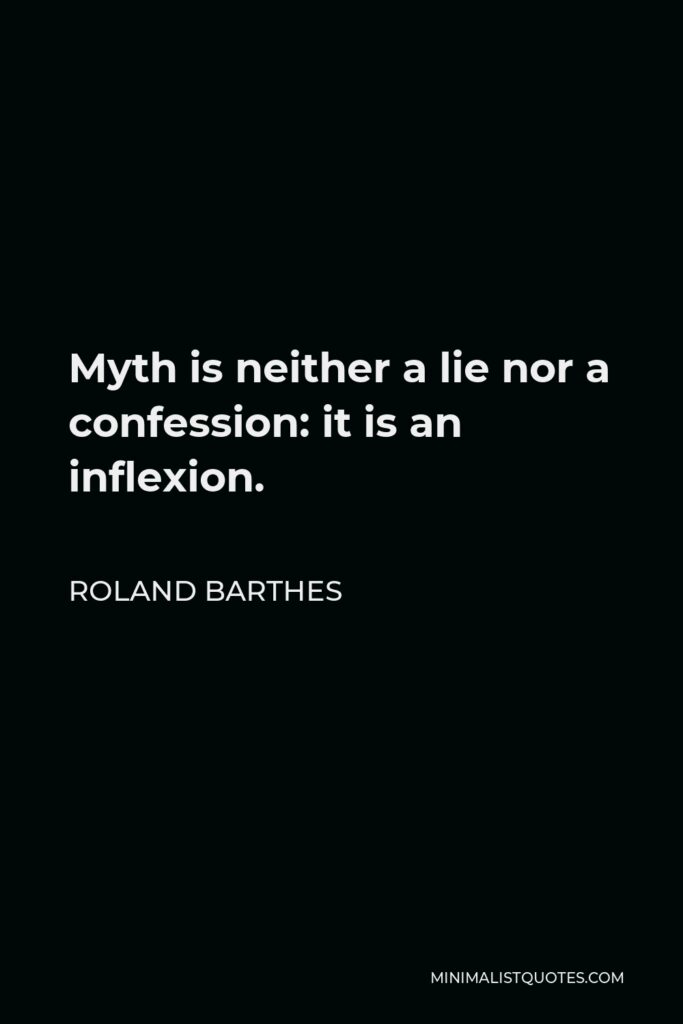

Myth is neither a lie nor a confession: it is an inflexion.
ROLAND BARTHES -





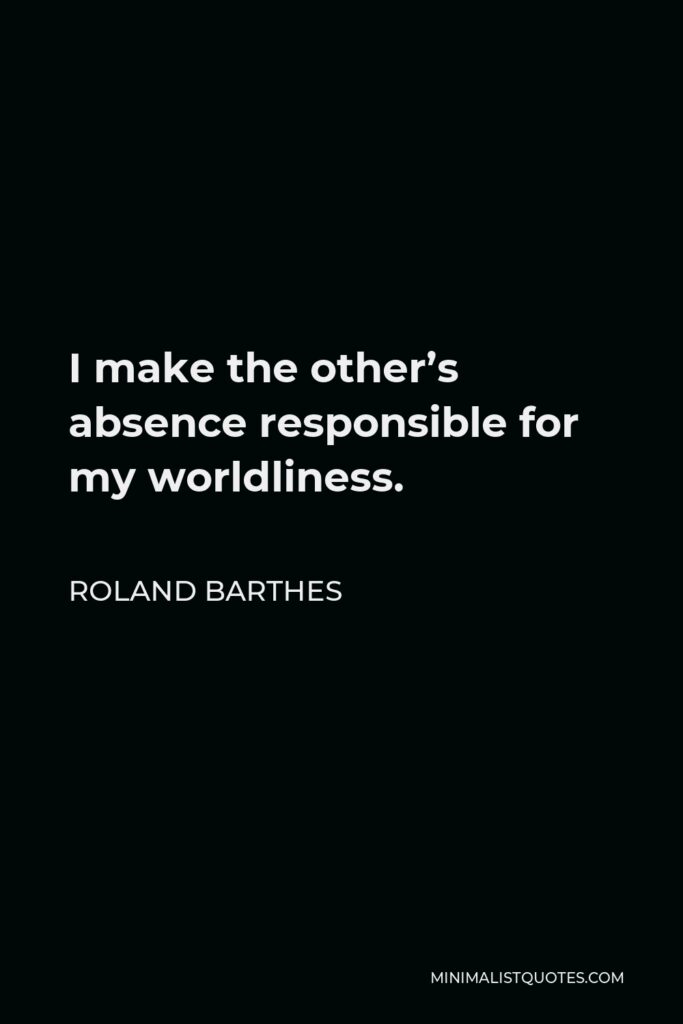

I make the other’s absence responsible for my worldliness.
ROLAND BARTHES -





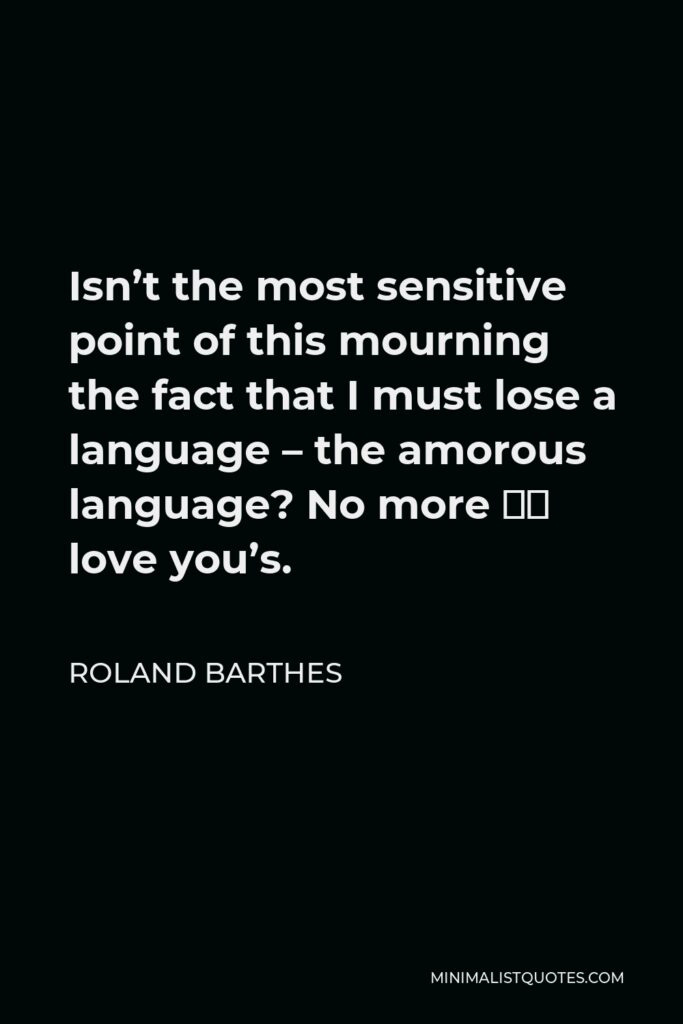

Isn’t the most sensitive point of this mourning the fact that I must lose a language – the amorous language? No more ‘I love you’s.
ROLAND BARTHES -





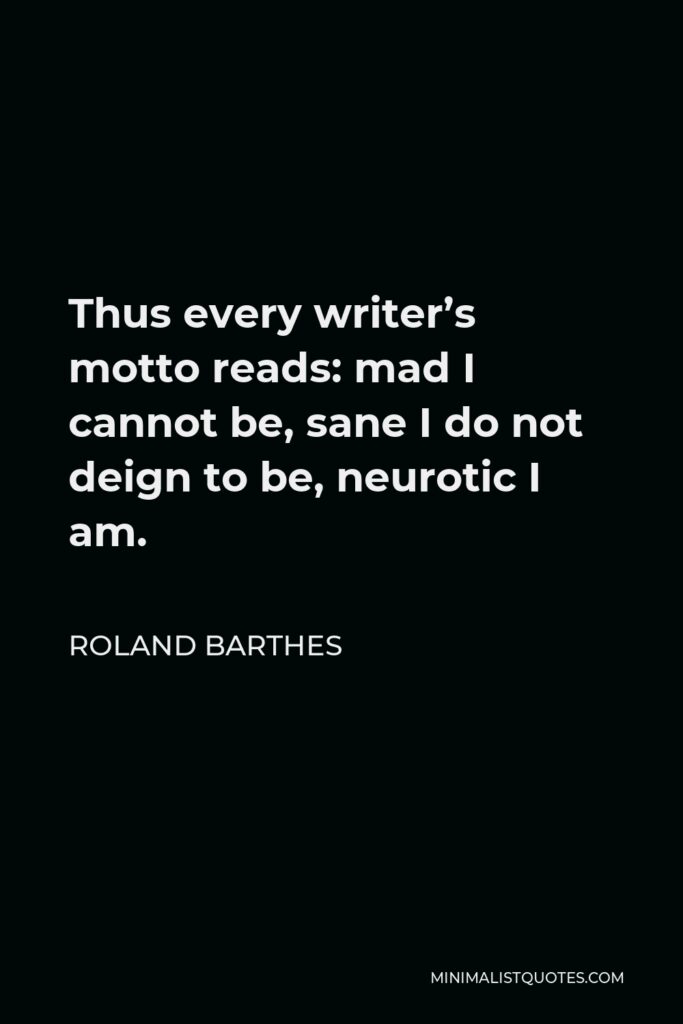

Thus every writer’s motto reads: mad I cannot be, sane I do not deign to be, neurotic I am.
ROLAND BARTHES -





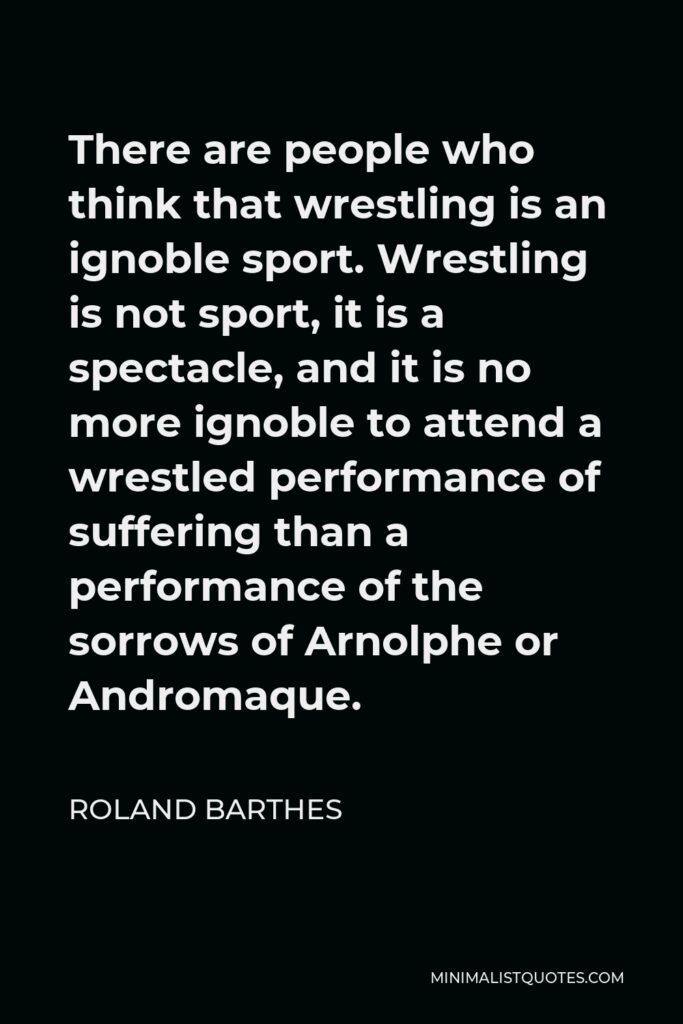

There are people who think that wrestling is an ignoble sport. Wrestling is not sport, it is a spectacle, and it is no more ignoble to attend a wrestled performance of suffering than a performance of the sorrows of Arnolphe or Andromaque.
ROLAND BARTHES -





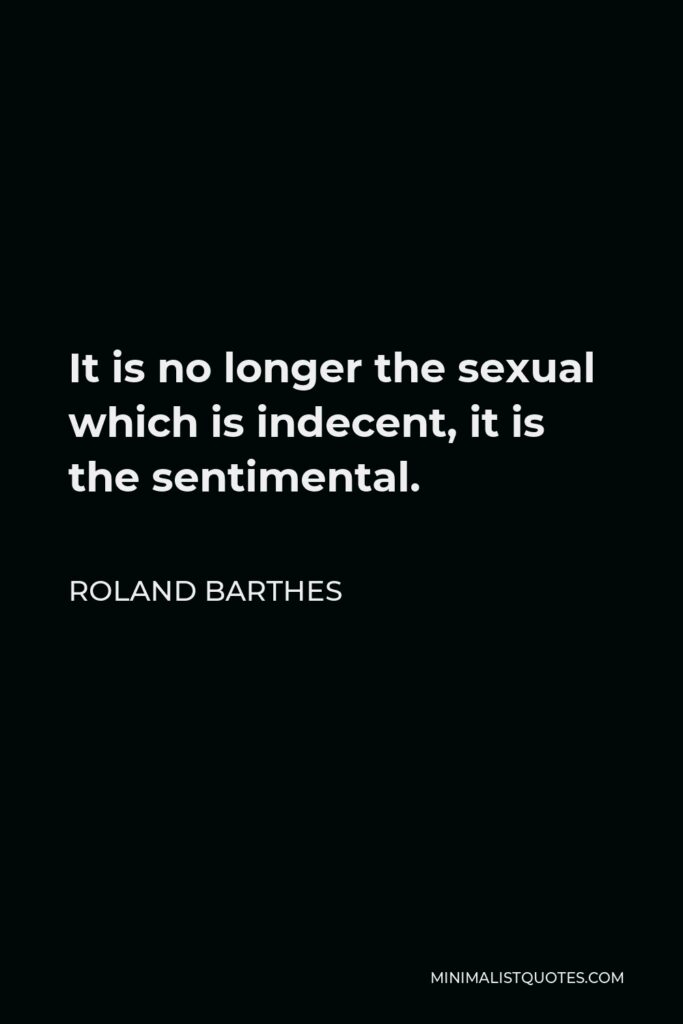

It is no longer the sexual which is indecent, it is the sentimental.
ROLAND BARTHES
